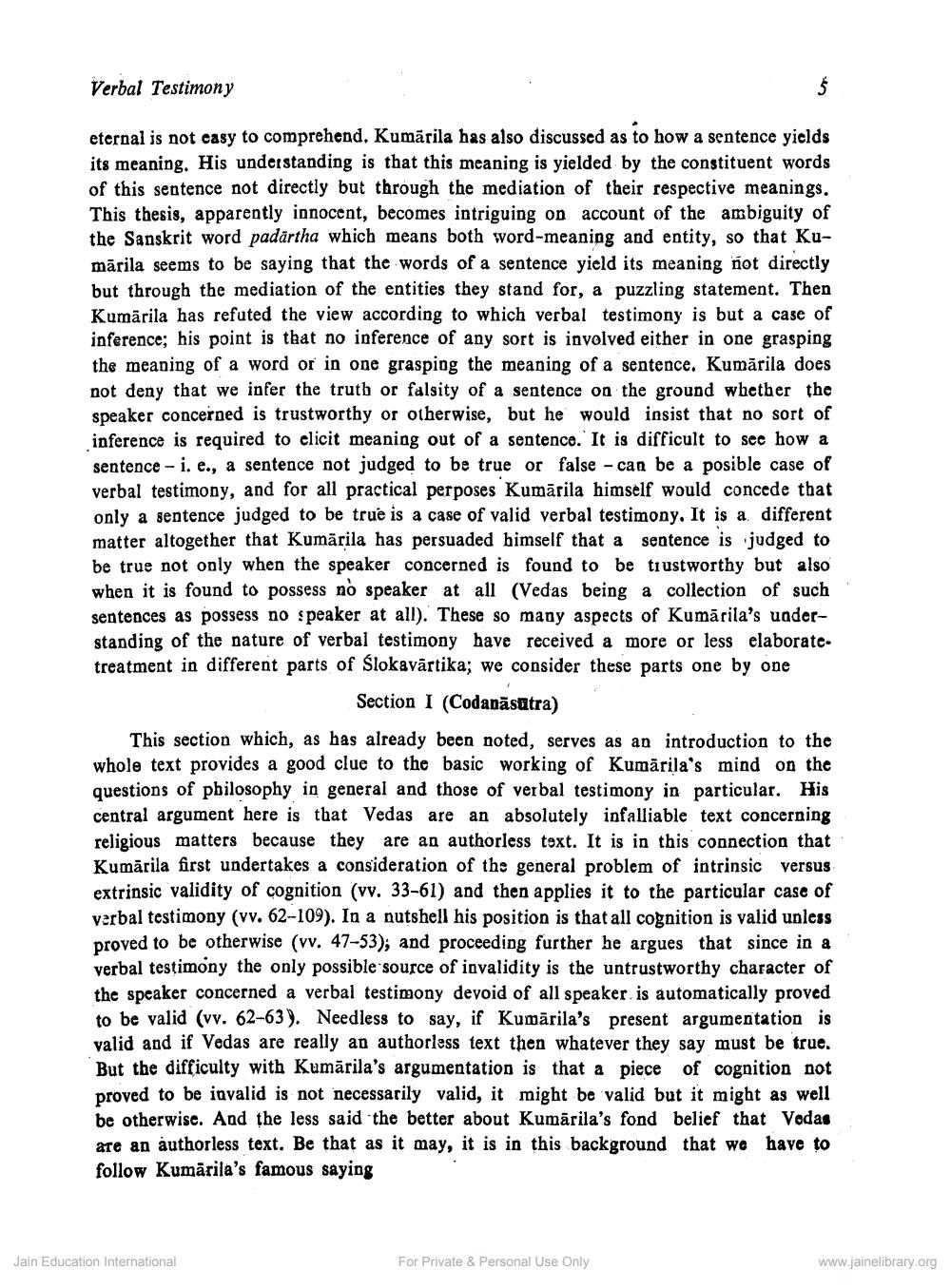________________
Verbal Testimony
eternal is not easy to comprehend. Kumārila has also discussed as to how a sentence yields its meaning. His understanding is that this meaning is yielded by the constituent words of this sentence not directly but through the mediation of their respective meanings. This thesis, apparently innocent, becomes intriguing on account of the ambiguity of the Sanskrit word padārtha which means both word-meaning and entity, so that Kumārila seems to be saying that the words of a sentence yield its meaning not directly but through the mediation of the entities they stand for, a puzzling statement. Then Kumārila has refuted the view according to which verbal testimony is but a case of inference; his point is that no inference of any sort is involved either in one grasping the meaning of a word or in one grasping the meaning of a sentence. Kumārila does not deny that we infer the truth or falsity of a sentence on the ground whether the speaker concerned is trustworthy or otherwise, but he would insist that no sort of inference is required to elicit meaning out of a sentence. It is difficult to see how a sentence - i. e., a sentence not judged to be true or false - can be a posible case of verbal testimony, and for all practical perposes Kumārila himself would concede that only a sentence judged to be true is a case of valid verbal testimony, It is a different matter altogether that Kumārila has persuaded bimself that a sentence is judged to be true not only when the speaker concerned is found to be trustworthy but also when it is found to possess no speaker at all (Vedas being a collection of such sentences as possess no speaker at all). These so many aspects of Kumārila's understanding of the nature of verbal testimony have received a more or less elaboratetreatment in different parts of Slokavārtika; we consider these parts one by one
Section I (Codanāsutra)
This section which, as has already been noted, serves as an introduction to the whole text provides a good clue to the basic working of Kumärila's mind on the questions of philosophy in general and those of verbal testimony in particular. His central argument here is that Vedas are an absolutely infalliable text concerning religious matters because they are an authorless text. It is in this connection that Kumārila first undertakes a consideration of the general problem of intrinsic versus extrinsic validity of cognition (vv. 33-61) and then applies it to the particular case of verbal testimony (vv. 62-109). In a nutshell his position is that all cognition is valid unless proved to be otherwise (vv. 47-53); and proceeding further he argues that since in a verbal testimony the only possible source of invalidity is the untrustworthy character of the speaker concerned a verbal testimony devoid of all speaker is automatically proved to be valid (vv. 62-63). Needless to say, if Kumārila's present argumentation is valid and if Vedas are really an authorless text then whatever they say must be true. But the difficulty with Kumārila's argumentation is that a piece of cognition not proved to be invalid is not necessarily valid, it might be valid but it might as well be otherwise. And the less said the better about Kumārila's fond belief that Vedas are an authorless text. Be that as it may, it is in this background that we have to follow Kumärila's famous saying
Jain Education International
For Private & Personal Use Only
www.jainelibrary.org




